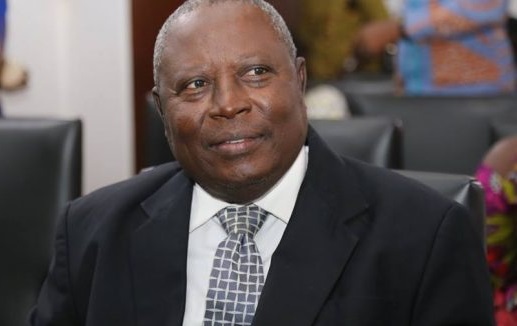THE SPECIAL Prosecutor, Martin Amidu, has revealed that heads of government’s institutions are refusing to support the fight against corruption.
According to him, they are also refusing to support the fight against corruption-related offences by not vigorously applying the regulations intended to aid the fight against corruption and other crimes.
He made this known in an article, asking rhetorically “what does the Government and the public expect the Office of the Special Prosecutor to do when heads of institutions refuse or fail to support the fight against corruption and corruption-related offences by not vigorously applying the regulations intended to aid the fight against corruption and other crimes?”
The Special Prosecutor observed that “corruption and corruption-related offences are offences committed primarily by public officers and one does not ordinarily expect heads of public institutions to protect public officers suspected of committing those offences even when they have been charged and put before the Court.”
He stated that “the two cases the Office of the Special Prosecutor has before the High Court for trial has surfaced the fact that heads of institutions do not take the fight against corruption seriously.”
Mr. Amidu indicated that “this demonstrates that this Government’s fight against corruption has a long journey to go unless some drastic action is taken against defaulting heads of institutions as suggested by the Public Services Commission.”
He explained that the perception that corruption and corruption-related offences are a systemic and pervasive low risk and high opportunity enterprise in Ghana was demonstrate beyond any reasonable doubt when the Office of the Special Prosecutor dared to charge and arraign before the High Court a member of the political elite (a Member of Parliament in this case) and some public officers for abuse of public office for private benefit and breaches of the procurement laws of Ghana.
According to him, a bi-partisan Legislature and the Executive machinery immediately invited the Special Prosecutor to commit to usurping the discretion of the Court by agreeing with Counsel for the accused on particular days for the trial of the case.
The Legislature, he said, whose members also form a majority of the Ministers in the Executive, went a further step in a bi-partisan manner to attempt to direct the Court in writing in the exercise of the court’s discretion to manage its own proceedings in the name of parliamentary immunity.
“A country whose Parliament and Executive coordinate in Parliament in a bi-partisan manner to delay trials and justice within a reasonable time when it comes to prosecuting any of its members for corruption cannot seriously convince the outside world that it is not only paying lip service to fighting the canker,” he said.
BY Melvin Tarlue


